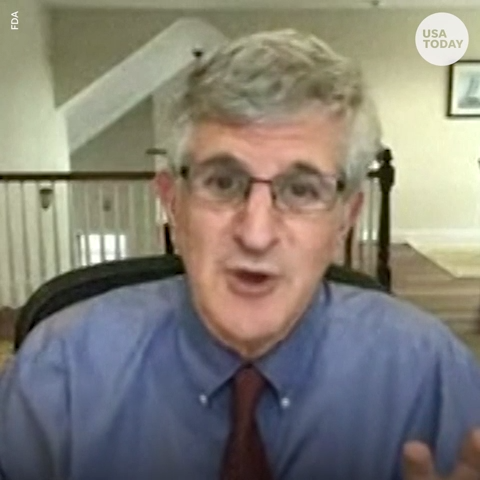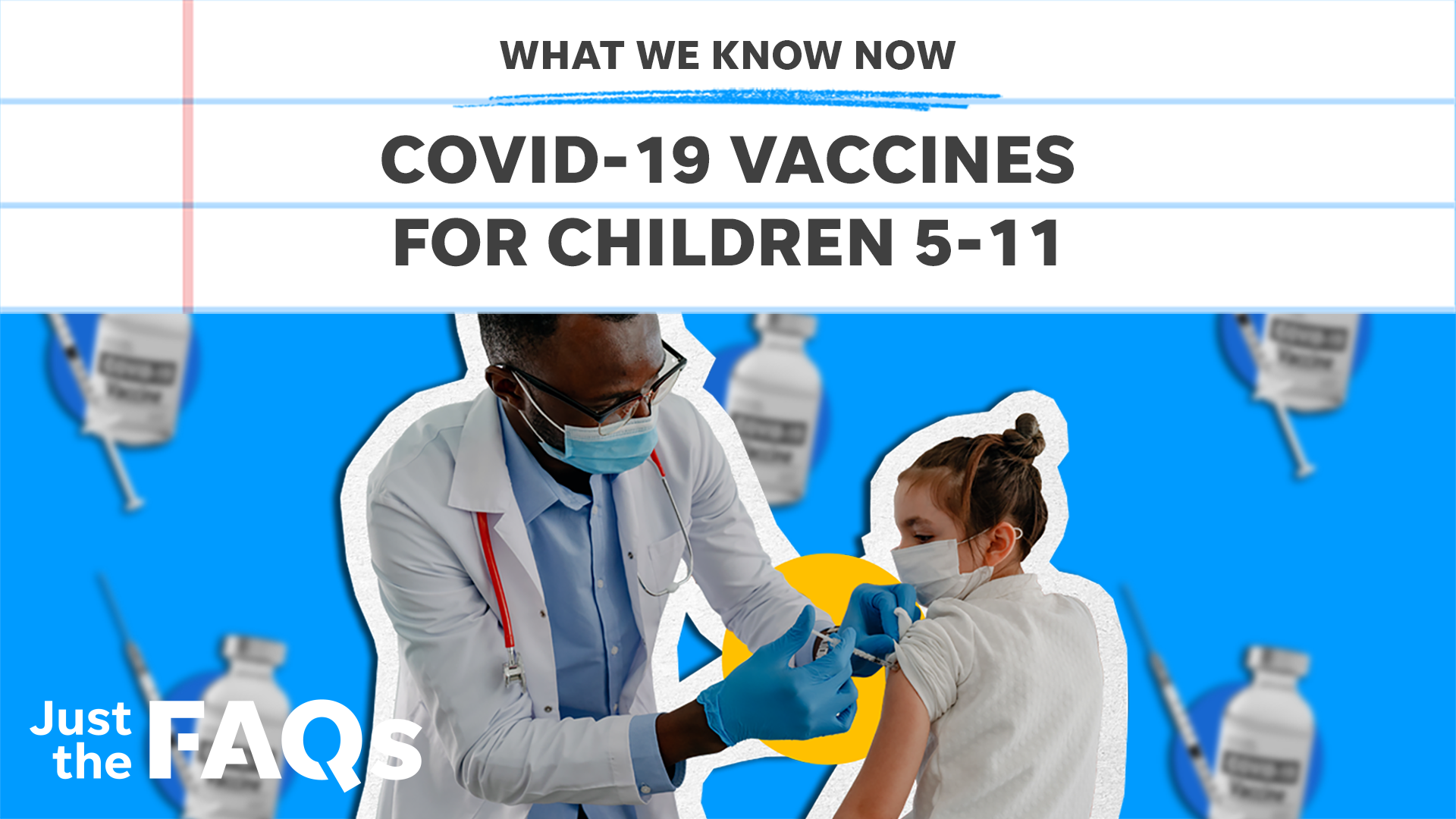'Still in that danger zone': Doctors prepare to quickly roll out COVID-19 vaccine to young kids

For parents like Beth Lewis, who have spent a year and a half protecting their children, it has been a race against a virus increasingly infecting younger, nonvaccinated kids.
In anticipation of this week's expected authorization of a COVID-19 vaccine for young children, Lewis, an elementary school teacher in Tempe, Arizona, booked appointments to get her two kids vaccinated on Saturday. She cried "tears of relief." Then, last week, her 8-year-old daughter got sick with COVID-19.
"It's incredibly nerve-racking," said Lewis, whose family was careful throughout the pandemic, masking and distancing. "It's still in that danger zone for kids because not enough adults have gotten vaccinated to protect our children. Kids don't have any control over it."
Though Lewis also contracted COVID-19, she said she's grateful her otherwise healthy daughter appears to have a minor case and her 10-year-old son has remained virus-free and will be vaccinated on Saturday.
More: Everything to know about COVID-19 vaccine and children: When will it be available?
Other parents eager to get their elementary-school-age children vaccinated are calling pediatricians, booking appointments for shots and asking questions about them. Some, however, want more details about the lower-dose vaccine's safety and effectiveness before committing to getting their kids vaccinated.
The expected rush of kids has prompted pediatricians and clinics at larger health systems to request shipments of doses from state and local health departments, plan weekend clinics to immunize children and hold special events to attract families and encourage immunization.
While the nation’s COVID-19 vaccination rollout initially relied on mass immunization sites and chain pharmacies from coast to coast, pediatricians are ready to take a larger role this week when children as young as 5 could become eligible for vaccines.
"I get lots and lots of questions," said Dr. Christina Johns, a pediatrician in Annapolis, Maryland. "Not just in my practice, but also online, in the grocery store and from neighbors."
“We're definitely getting calls,” said Brandi Freeman, assistant professor of pediatrics and associate vice chair for diversity, equity and inclusion at the University of Colorado Medicine.
The Food and Drug Administration on Friday authorized a child-sized version of the Pfizer-BioNTech vaccine that is one-third the dose given to teenagers and adults. Similar to adults and adolescents, the child vaccine is administered in two shots over three weeks.
One step remains before about 28 million kids ages 5 to 11 become eligible. A Centers for Disease Control and Prevention advisory panel on Tuesday will evaluate who should get the vaccine before a final sign-off from CDC Director Rochelle Walensky.
Even before the CDC greenlights the lower-dose vaccine, doctors, clinics, urgent care centers and pharmacies all are preparing for the surge.
Presidential adviser Jeffrey Zients said Monday that the Biden administration has ordered enough vaccine to cover all American children in the 5 to 11 age group. The administration’s distribution program will be “running at full strength” the week of Nov. 8, he said.

Vaccine offers stronger protection than infection
While many parents want to get their kids vaccinated as quickly as possible, pediatricians expect lots of questions from parents who want to know more.
Some question whether their children need to get vaccinated if previously infected, but studies on adults and adolescents show the vaccine immunity offers better protection than antibodies from an infection.
The early evidence from a clinical trial by Pfizer and BioNTech revealed that if a person experiences side effects, it’s likely to happen within the first weeks after the shots. However, the three-phase clinical trial has not yet produced data beyond two months.
“This vaccine has made three diseases of children now vaccine-preventable,” said Dr. Sallie Permar, chair of Pediatrics at Weill Cornell Medicine and New York-Presbyterian Komansky Children’s Hospital in New York City.
More: Rush is on: With vaccine orders placed, doctors, pharmacies prepare for a flood of young children
Nearly 2 million children ages 5 to 11 have been infected with the virus. And while hospitalization rates among kids remain lower than adults, some children are vulnerable to respiratory disease and required care in hospital ICUs, Permar said.
Children with COVID-19 also are at risk for multisystem inflammatory syndrome, particularly younger children who will now be eligible for this vaccine. More than 5,200 children have been diagnosed with the rare immune system reaction that can attack the heart, lungs, kidneys and brain, and 46 children have died, according to the CDC.
In addition to shielding kids from hospitalization and multisystem inflammatory syndrome, vaccination also protects from so-called long-haul COVID-19, which can afflict children and adults with symptoms that can linger for months.
“Those three diseases that were totally new to us in the past two years are now about to become vaccine-preventable,” Permar said. “And that's what's so needed for this age group.”
Getting the facts to parents
Still, pediatricians expect a “lot more counseling, a lot more education” as parents ask questions, Freeman said. Parents have asked Freeman about the vaccine's safety and effectiveness and whether there are any long-term effects, and she said she has been able to win over skeptics by providing factual information.
She described one mother who decided to skip most recommended childhood immunizations. When the woman's 12-year-old son asked about getting a COVID-19 vaccine, she brought him to Freeman, who informed the family about the data. Not only did the woman agree to get the vaccine for herself and her son, she agreed to routine childhood immunizations for her other children.
Johns, a senior medical adviser for the pediatric urgent care group PM Pediatrics, said parents are turning to pediatricians as a trusted resource for information on vaccines.
It's important to help vaccine skeptics "understand the data and to continue to educate in a way that doesn't alienate, is supportive and leans into the science," Johns said.
Doctors can request shipments of 300 doses compared with the shipments that exceeded 1,000 doses earlier in the pandemic. Those shipments were impractical for small doctor’s offices to distribute because they did not have the ultra-cold freezers to store such a large number of doses, said Michael Ganio, senior director of pharmacy practice and quality at the American Society of Health-System Pharmacists.
Ganio expects parents will turn to a wide range of places to get their kids vaccinated. Pediatricians will play a major role, but the vaccine rollout comes as many doctors' waiting rooms are filled with kids amid cold and flu season.
Whether part of a large chain such as CVS or Walgreens or part of a larger health system, pharmacists are trained to answer questions patients might have, Ganio said.
“That's where pharmacists are well-positioned,” he said. “That's our language.”
Ken Alltucker is on Twitter as @kalltucker or can be emailed at alltuck@usatoday.com